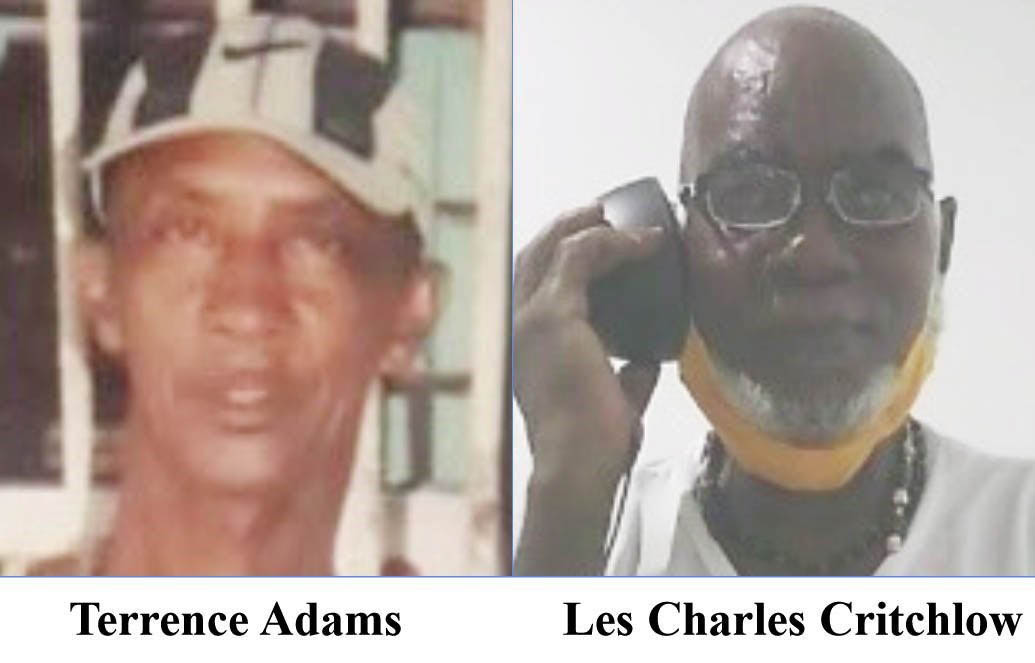Les Charles Critchlow has been sentenced to 60 years in prison for the 2016 murder of his brother-in-law, Terrence Adams.
Handing down the sentence yesterday morning, Justice Navindra Singh said that he found no genuine remorse from the convict.
The judge alluded to Critchlow repeatedly saying that he was sorry that Adams had lost his life, but underscored that in the same vein he continued to profess his innocence.
In those circumstances, Justice Singh said that Critchlow was clearly “still in denial” and could not be said to have been truly sorry, having not accepted responsibility for his actions despite the evidence and the jury’s verdict.
The judge described the case as unfortunate.
He said that while there were aggravating factors, given Critchlow’s age, he would make no additions to the sentence, but did say that the prison is to deduct the time Critchlow spent on remand awaiting trial.
Critchlow was convicted on February 9th, for the May 12th, 2016 murder of Adams whom he attacked and stabbed multiple times following a verbal altercation at Haslington, East Coast Demerara.
His sentence had been deferred for a probation report. That report was tendered at yesterday’s hearing, but not read, though the judge, prosecution and defence all indicated that it was not favourable to the convict.
In a mitigating plea, attorney Rachael Bakker sought to impress upon the court that her client was sorry for what he had done; and that he had taken full responsibility for his actions.
Noting the unfavourable probation report on her client, Bakker then commended him to the court’s mercy.
In his address to the court, however, Critchlow, who professed his love for his brother-in-law, stated that he was sorry that Adams had died, but vehemently denied any involvement in the man’s death.
Protesting his innocence, he advanced that no one had ever testified to seeing him inflict the fatal injuries on Adams.
“I love Terry, I sorry and I’m hurting Sir,” he had told Justice Singh as he begged for leniency.
He claimed that it was because he had gone back to Adams’ shop a second time, that his name had been implicated in the murder, expressing the sentiments of his attorney that he had been “in the wrong place at the wrong time.”
“Terry hit me and I move away and there was a crowd around there,” Critchlow continued to protest, while raising claims of having sustained an injury to the head which he complained was never mentioned during the trial.
In her address to the court, however, Prosecutor Tiffini Lyken asked the judge to impose a sentence that would reflect the nature and gravity of the offence, while advancing that the convict’s claim of being at “the wrong place at the wrong time,” could not be true when according to the evidence, he had willfully gone to Adams’ shop a second time after an initial verbal altercation with the man.
Like the judge, Lyken, too, said that this claim demonstrated that Critchlow did not respect the jury’s verdict and therefore could not be said to have expressed any genuine remorse.
She asked the court to consider that Adams had been the victim of what she described as a brazen unprovoked attack and had been stabbed multiple times—at least once to the neck.
She also asked the judge to consider other aggravating factors such as the use of a knife and what she said was the degree of premeditation.
Sharing a sentiment Bakker had expressed, Lyken said it is indeed shameful when families fight, while adding that Adams’ family is still in grief over his loss.
The state’s case had been that on the night in question Critchlow went into Adams’ shop at Haslington and stabbed him.
The brother of the deceased, Leyland Nelson, had testified to Adams having a conversation with Critchlow earlier on the day in question about money which he (Critchlow) owed to Adams.
Critchlow’s daughter-in-law Shellon Marks and his reputed wife Janice Nelson had both also testified about arguments between the two men and they had corroborated each other’s account of seeing Critchlow leaving the home on the night in question with a knife stashed in his pants waist.
An eyewitness had related that the two men were arguing about some work that Critchlow was contracted to do at Janice’s residence and which Adams thought was not properly done.
The eyewitness related that after the argument ensued, Adams related to the man that it was not the place to speak about the issue and told him that they would talk about it in the morning at the job site.
However, the eyewitness had said, “Les din wan hear that and he start to bad up and start telling (the deceased) bout wuh he gon do he,” prompting Adams to tell the man to leave his shop.
An aggravated Critchlow then pulled a knife from his waist and stabbed Adams in his lower abdomen.
The cause of death had been given as multiple incised wounds.






